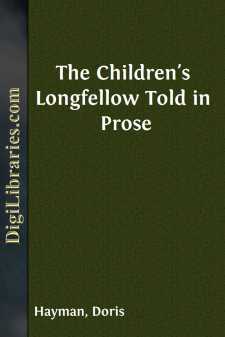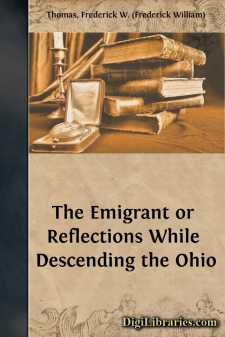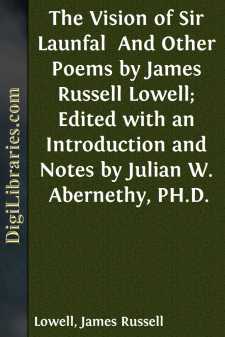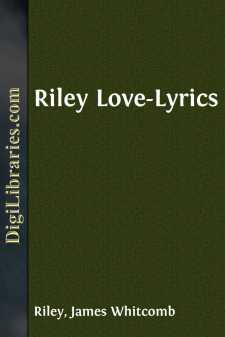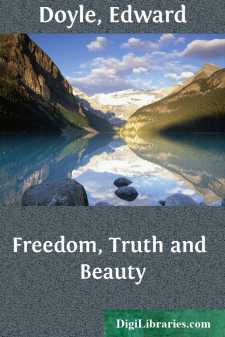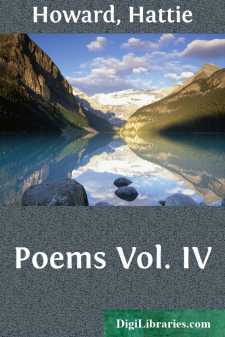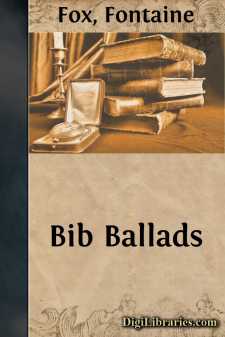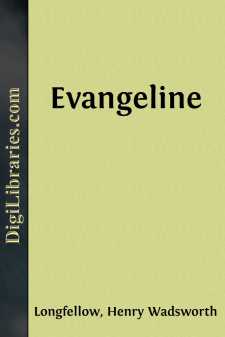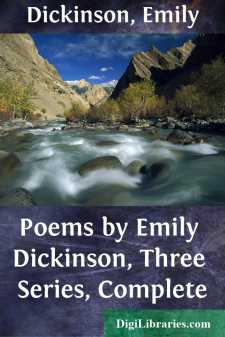Poetry
American Books
Sort by:
by:
Doris Hayman
LONGFELLOW'S POEMS IN PROSE he home of the American poet, Henry Wadsworth Longfellow, during the greater part of his life was in the picturesque town of Cambridge, Massachusetts, and there many of his best known poems were written. The forge of the Village Blacksmith really stood there beneath the shelter of a "spreading chestnut tree," in Cambridge, and when, as the town grew larger, the...
more...
MEMOIR. Frederick William Thomas was the oldest child of E. S. Thomas and Anna his wife. He was born at Providence Rhode Island, but spent his earlier years at Charleston South Carolina, where Mr. E. S. Thomas resided and edited and published the Charleston City Gazette. While Frederick William was still young, Mr. Thomas removed to Baltimore Maryland, and there his son was educated and brought up to...
more...
LIFE OF LOWELL In Cambridge there are two literary shrines to which visitors are sure to find their way soon after passing the Harvard gates, "Craigie House," the home of Longfellow and "Elmwood," the home of Lowell. Though their hallowed retirement has been profaned by the encroachments of the growing city, yet in their simple dignity these fine old colonial mansions still bespeak the...
more...
AN OLD SWEETHEART OF MINE As one who cons at evening o'er an album all alone,And muses on the faces of the friends that he has known,So I turn the leaves of fancy till, in shadowy design,I find the smiling features of an old sweetheart of mine. The lamplight seems to glimmer with a flicker of surprise,As I turn it low to rest me of the dazzle in my eyes,And light my pipe in silence, save a sigh...
more...
by:
Edward Doyle
THE QUALITY OF THE WORKS OF EDWARD DOYLE The quality of Edward Doyle's work was appraised by Ella Wheeler Wilcox in the following article by Mrs. Wilcox which appeared in the New York Evening Journal and the San Francisco Examiner, in 1905: Shut your eyes and bind them with a black cloth and try for one hour to see how cheerful you can be. Then imagine yourself deprived for life of the light of...
more...
by:
Hattie Howard
Poems. "The Salt of the Earth."The salt of the earth—what a meaningful phraseFrom the lips of the Saviour, and one that conveysA sense of the need of a substance salineThis pestilent sphere to refresh and refine,And a healthful and happy condition secureBy making it pure as the ocean is pure.In all the nomenclature known to the race,In all appellations of people or place,Was ever a name so...
more...
by:
Fontaine Fox
GOOD-BY BILL Dollar Bill, that I've held so tightEver since payday, a week ago,Shall I purchase with you tonightA pair of seats at the vaudeville show?(Hark! A voice from the easy chair:"Look at his shoes! We must buy a pair.") Dollar Bill, from the wreckage saved,Tell me, how shall I squander you?Shall I be shined, shampooed and shaved,Singed and trimmed 'round the edges, too?(Hark!...
more...
PART THE FIRST. I IN the Acadian land, on the shores of the Basin of Minas, Distant, secluded, still, the little village of Grand-Pré Lay in the fruitful valley. Vast meadows stretched to the eastward, Giving the village its name, and pasture to flocks without number. Dikes, that the hands of the farmers had raised with labor incessant, Shut out the turbulent tides; but at...
more...
by:
Michael Earls
HIS LIGHT Gray mist on the sea,And the night coming down,She stays with sorrowIn a far town. He goes the sea-waysBy channel lights dim,Her love, a true light,Watches for him. They would be weddedOn a fair yesterday,But the quick regimentSaw him away. Gray mist in her eyesAnd the night coming down:He feels a prayerFrom a far town. He goes the sea-ways,The land lights are dim;She and an altar lightKeep...
more...
by:
Emily Dickinson
I. SUCCESS. [Published in "A Masque of Poets"at the request of "H.H.," the author'sfellow-townswoman and friend.] Success is counted sweetestBy those who ne'er succeed.To comprehend a nectarRequires sorest need. Not one of all the purple hostWho took the flag to-dayCan tell the definition,So clear, of victory, As he, defeated, dying,On whose forbidden earThe distant strains of...
more...


